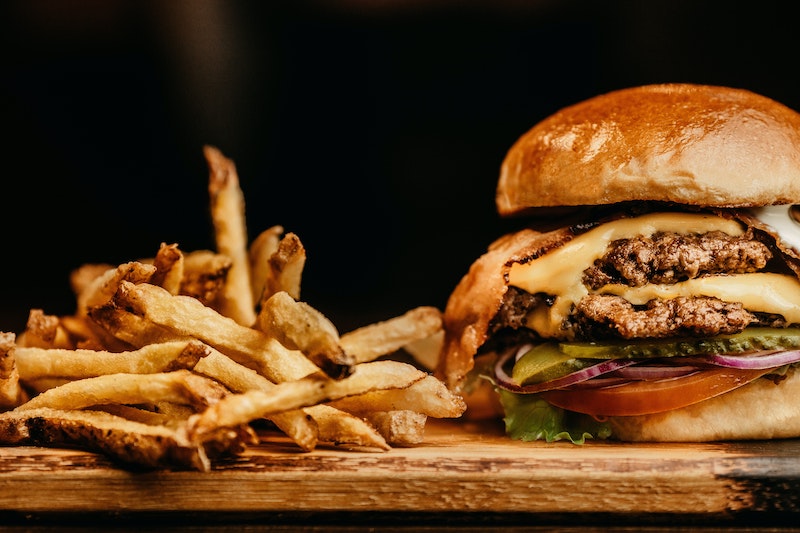It’s time to beat the bloat, get leaner and burn more fat with Intermittent Fasting! You might be wondering how it can help you?
Well, intermittent fasting is a type of eating pattern where people go long periods without food. The benefits are that you’ll have increased energy levels, improved brain function, and metabolism which will help lead to weight loss.
So if you’re ready for an easier way to stay on track then keep reading!
What is Intermittent Fasting (IFing)?
First and foremost, intermittent fasting is a schedule of eating that doesn’t always involve food. Depending on which intermittent fasting routine you choose, your days of eating will go from a few hours to 24 hours.
This type of dieting does not have any specific guidelines for what you eat, and it also can be done by people who are vegan or vegetarian so there is no need to worry about whether this would affect your lifestyle in any way.
Some may find the idea daunting at first but once they give it their all then they realize how beneficial intermittent fasting really is!
How IF Affects Your Body
When we hear IF we think weight loss, but the other major advantage comes from cellular repair–intermittent fasting causes less stress on your cells, so they are better able to regenerate. This means increased energy levels, improved mental clarity, and reduced risk of chronic disease!
The way intermittent fasting affects your cells is by stimulating autophagy.
Autophagy is a natural process that removes defective or unnecessary cells to maintain optimum health and prevent disease, so by stimulating this you are giving your body more protection from free radicals which cause cancer and other diseases.
Intermittent fasting also triggers the release of human growth hormone (HGH) during sleep cycles–which contributes to muscle repair, fat burning, immune function, insulin sensitivity…the list goes on!
It’s an all-around win for men and women who want to lose weight while preserving their lean muscle mass.

Health Benefits
Fasting has been around for centuries and with science now backing up its benefits-it’s become more popular than ever before because many see these points as being true:
- The first main benefit to intermittent fasting is the opportunity for weight loss and fat burning; it also helps you maintain muscle mass, which could be helpful if you’re looking to build some more lean muscle or get toned in an accelerated manner.
- It has been shown to increase human growth hormone levels by as much as 1,350% in women and 2000% in men.
- It can improve health and longevity, reducing the risk of developing many age-related diseases such as heart disease and Alzheimer’s.
- It boosts metabolism which increases weight loss because fat burning is increased during periods without food intake (fasting). This also means that those who fast will be able to eat more than they would on a diet with limited calories before feeling full.
Intermittent Fasting Methods
There are different types of IF and these are the three popular different types:
Eat, Stop, Eat:
Consists of eating normally five days a week and then fasting for one or two consecutive 24 hour periods. Beware! This method of IF has extreme side effects, such as fatigue, headaches, and irritability.
The 16/8 and 14/10 Method:
This type of method is also called time-restricted eating and is a popular choice since you already fast when sleeping.
This method is eating regularly for 8 hours of the day and fasting for sixteen hours or 10 hours eating window and 14 hours fasting. This can be done by skipping breakfast and late-night meals, which are typically where people eat more than necessary anyway.
16/8 Method: This is when you fast for 16 hours and have an 8-hour eating window. For example, eating between 12 p.m. and 8 p.m.
14/10 Method: When you fast for 14 hours and have 10 hours of eating window. For example, eating between 12 p.m. and 10 p.m.
What’s great about this method is that you can align it and add your sleep time. If you think about it, most people don’t even eat breakfast due to their busy schedules.
Alternate Day Fasting:
This requires people to fast on alternating days (24 or 36) to allow their digestive system time to rest and repair itself from the strain of digesting foods without any break – as well as providing some metabolic benefits.
This type is also known as the “every other day” diet because it allows individuals to consume food every other day while still getting all necessary nutrients in one meal per 24 hours period.
There’s a study done that this method was not superior when compared to daily calorie restriction when it comes to weight loss and weight maintenance.
Makes Your Healthy Lifestyle Simpler
Intermittent Fasting’s main purpose is to make your health and fitness journey a little bit easier. Think of it as a schedule but not a diet. You still need to consider your basal metabolic rate, caloric intake, and your macronutrient ratio.
IF can help you keep track of when you’re eating. It brings awareness to your food intake and meal timing while enabling a healthier lifestyle with less guilt, more energy, and better focus. It’s easier to maintain because it becomes part of your day-to-day life.
IF also helps you reach ketosis, which is when your body starts to burn fat as its primary source of fuel instead of glucose or sugar.
It may also reduce your risk of heart disease, high cholesterol, and type-II diabetes.
IF is not a quick fix to weight loss; it’s more like a long-term lifestyle change. It doesn’t work for everyone but the majority will see benefits from it.

How to Start Intermittent Fasting
The best way to start IF is by going with a 16/8 method. This means you’re fasting for 16 hours and eating only during the other 8-hours window.
The first step to intermittent fasting is figuring out what you’re going to eat during your eating window.
Some people prefer a more restrictive diet while others like to enjoy food and don’t mind if they have some junk in there now and then.
Example of a 16/8 schedule:
Here’s a great intermittent fasting schedule you can copy. I created this IF schedule for me and my girlfriend. We’ve been seeing great results!
Mon | Tues | Wed | Thurs | Fri | Sat | Sun | |
Eating | 12p-8p | 12p-8p | 12p-8p | 12p-8p | 12p-8p | 12p-8p | 12p-8p |
Fasting | 9p-11am | 9p-11am | 9p-11am | 9p-11am | 9p-11am | 9p-11am | 9p-11am |
Remember that you can modify the times that fit your daily schedule.
What to Eat for Intermittent Fasting
Remember that IFing is a schedule of eating and not so much of a diet. Although you can eat anything when you’re doing intermittent fasting, it’s always a good idea to stay on the healthier side. Here are some healthy food choices:
- Lean Protein: such as fish, chicken breast, turkey
- Vegetables: broccoli, spinach, kale, brussels sprouts
- Fruits: apples, bananas, oranges, strawberries
- Nuts and Seeds: almonds, chia seeds, walnuts
- Oils: extra virgin olive oil, coconut oil
- Beans and Legumes: like lentils, black beans, chickpeas
- Whole Grains: brown rice, quinoa, whole wheat bread
- Healthy Fats: avocado, olive oil, peanut butter.
- Staying hydrated is important while intermittent fasting so drink plenty of water and other healthy beverages like herbal tea or green juice.
You Can Do It!
Intermittent fasting is a dietary pattern that can be beneficial for weight loss, intermittent energy levels, and mental focus. With intermittent fasting, you don’t need to give up your favorite foods or go hungry – it’s about scheduling regular eating windows throughout the day so you still get to enjoy food with less guilt. It may take some experimentation at first to figure out what intermittent fasting schedule works best for you but once you find one that suits both your body and lifestyle, intermittent fasting has proven benefits!
Although Intermittent fasting is just a schedule of eating patterns, it doesn’t mean to go crazy and eat junk food. I want you to think healthy during your eating window.
If you need help creating your schedule feel free to shoot me an email or message on any of my social media platforms and I’ll be happy to help you figure out intermittent fasting that works for your body type.
FAQ
Can I Drink Liquids During the Fast?
Water is usually the best option, but coffee and tea are fine as long as they do not have any added milk or sugar.
Remember that it takes time for your body to tell your brain about its thirst level so if you drink too much of anything during fasting periods, you might feel nauseous.
Can I Exercise During the Fast?
Yes, you can exercise during your fasting hours. But I recommend exercising during your eating window due to the fact that our body needs proper nutrition after our workout.
What Happens if I Don't Eat Enough Calories?
Your body will go into starvation mode and slow down its metabolism in order to survive.
If you consistently under-eat, intermittent fasting might not be the best option for your body type. I recommend starting with 16/18 IF instead and seeing what that does for you first before progressing on to more advanced intermittent fasting variations.
Is intermittent fasting for you?
Always talk to your doctor before changing your eating schedule. Intermittent fasting is a great way to lose weight, but it might not be for everyone.







